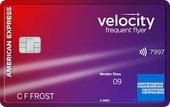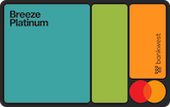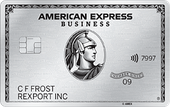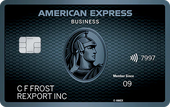Get cashback from your daily spend
Credit Card Compare featured offer
Highlights
- Earn up to $30 cashback each month on your spending, which adds up to $360 over the year!
- Pay a variable interest rate of 16.99% p.a on purchases to keep costs manageable.
- Lock in lower rates on instalments for bigger buys.
- You get free travel insurance as well. Terms, conditions, limits and exclusions apply.

Use our quick credit card search
What do you want from your new credit card?
- ✓ Compare 200+ credit cards from 60+ providers
- ✓ Independent and transparent comparisons
- ✓ Compare cards side-by-side
Turn everyday spend into points.
Compare frequent flyer credit cards
Highlights
- Start strong with up to 80,000 bonus Qantas Points. Spend $7,500 on eligible purchases in the first 90 days and keep your card open for over 15 months to claim them. This is a limited-time deal for new customers only, with terms and conditions that apply.
- Earn 0.6 Qantas Points for every dollar on your first $2,500 spent each month on eligible purchases, then 0.3 points per dollar after that.
- Enjoy free overseas travel insurance for you and your family when you book flights using this card.
- Pay no foreign transaction fees on purchases made online or overseas.
Highlights
- New customers can earn 50,000 bonus Velocity Points. Apply by 5 November 2025, get approved and spend $3,000 on eligible purchases in the first three months. This deal applies only to those new to American Express cards.
- Earn 1.75 Velocity Points for every dollar spent on Virgin Australia products and services, up to one point per dollar on daily buys, and 0.5 points per dollar on government spending.
- Once you reach 12,000 Velocity Points in a calendar year, the daily earn rate adjusts to 0.75 points per dollar.
- Your points move to your Velocity account each month and you can use them for flights, hotels, car hire, gift cards and more.
Transfer debt to a 0% credit card.
Compare 0% balance transfer cards
Highlights
- Move your balance with 0% interest p.a. for 24 months, plus a 3% transfer fee. After that, it reverts to 12.99% p.a.
- Pay a low annual fee of $49 p.a.
- Add up to 3 extra cardholders at no cost.
Highlights
- Move your balance with 0% interest p.a. for 24 months, plus a 3% transfer fee. After that, it shifts to 12.99% p.a.
- Shop online or overseas without foreign transaction fees.
- You and your family get free overseas travel insurance as a handy extra.
Highlights
- Limited-time deal for new customers. Apply and get approved by 17 November 2025 to earn up to $340 in Latitude Rewards. Spend $1,000 each month for the first three months to claim a bonus $100, and unlock up to $240 more each year on local and overseas purchases that qualify. Terms and conditions apply.
- No annual fee in your first year. From year two, keep it waived by spending at least $12,000 on eligible purchases each year. The standard annual fee is $96, with other charges and terms that apply. This offer is for new customers only, and you must meet the minimum spend.
- Shop overseas or online without foreign transaction fees.
- If your flight delays by 2 hours or more, enjoy free access to airport lounges with food, drinks and Wi-Fi.
Highlights
- Enjoy 0% interest p.a. for 6 months on purchases and balance transfers, with a 3% balance transfer fee. It then changes to 18.99% p.a.
- Pay no foreign transaction fees, even for online shopping from overseas stores.
- Keep costs down with no annual fee for life.
- Spread payments with Easy Instalments, putting up to 5 eligible purchases on an interest-free plan.
- Start with a credit limit from at least $6,000.
Get a card with no annual fee.
Compare no annual fee cards
Highlights
- Enjoy 0% interest p.a. for 6 months on purchases and balance transfers, with a 3% balance transfer fee. It then changes to 18.99% p.a.
- Pay no foreign transaction fees, even for online shopping from overseas stores.
- Keep costs down with no annual fee for life.
- Spread payments with Easy Instalments, putting up to 5 eligible purchases on an interest-free plan.
- Start with a credit limit from at least $6,000.
Highlights
- New customers can take advantage of this limited-time deal. Apply and get approved by 12 January 2026, then make an eligible purchase within 90 days to skip the annual card fee in your first year and save $69. Terms and conditions apply.
- Earn 3% back in Latitude Rewards on regular bill payments to selected utilities, telco providers and streaming services.
- Add one extra cardholder at no cost.
- This offer cannot combine with any others.
Highlights
- Limited-time deal for new customers. Apply and get approved by 17 November 2025 to earn up to $340 in Latitude Rewards. Spend $1,000 each month for the first three months to claim a bonus $100, and unlock up to $240 more each year on local and overseas purchases that qualify. Terms and conditions apply.
- No annual fee in your first year. From year two, keep it waived by spending at least $12,000 on eligible purchases each year. The standard annual fee is $96, with other charges and terms that apply. This offer is for new customers only, and you must meet the minimum spend.
- Shop overseas or online without foreign transaction fees.
- If your flight delays by 2 hours or more, enjoy free access to airport lounges with food, drinks and Wi-Fi.
Maximise rewards and savings for your business expenses.
Compare business credit cards
Highlights
- Pay no interest at 0% p.a, which makes this card a smart pick for businesses managing regular costs.
- Shop overseas or online without foreign transaction fees adding to your bill.
- Your first month comes with no fees, so you can get started easily.
- Access credit limits up to $500,000 for the flexibility your business needs. Remember to clear your balance in full each month.
- This card gives growing businesses the spending room they want without interest worries.
Highlights
- New customers can earn 300,000 bonus Membership Rewards points. Apply by 13 January 2026, get approved and spend $12,000 on eligible purchases in the first 3 months.
- Pay an annual fee of $1,750 each year.
- Earn up to 2.25 points for every dollar spent on eligible purchases.
- Access special Platinum perks for travel, events and dining to make business smoother.
Highlights
- New customers can earn 50,000 bonus Membership Rewards points. Apply online, get approved, and spend at least $3,000 on eligible purchases within 3 months to qualify.
- Relax with two Centurion Lounge passes each year at Sydney and Melbourne airports.
- Book your return flight with your card to access free travel insurance.

Indepedently owned credit card comparison site.
Helping Australians compare credit cards since 2008
1. Compare
Our well-established partnerships with providers allow us to offer you excellent value through a wide selection of deals and cards.*
2. Choose
Review offers, compare credit cards, and options from our selection of card issuers* and narrow down your choices based on your needs.
3. Save
Compare our range of issuers and card types* to determine if you can find a more suitable card.


Compare the credit card market.
Credit card comparison made simple

David Boyd, co-founder of Credit Card Compare, explains how we have been helping Australians compare credit cards for over 15 years.
With hundreds of credit cards on the market offering a dizzying array of rates, fees and features, finding the right product for your spending habits and financial situation is challenging.
At Credit Card Compare, we want to make it easier to cut through these complexities and provide Aussie consumers and businesses with a credit card comparison service to find their next credit card.

In easy and simple terms.
What is a credit card?
A credit card represents a banking instrument that offers a pre-approved credit limit by a financial institution, enabling expenditures and bill payments. Issuers typically provide it in dual formats: a tangible card for physical transaction needs and a virtual version for seamless online usage. The issuer can make an instant approval credit card decision within 60 seconds.

Basics of their inner workings.
How do credit cards work?
Credit cards work on a principle of borrowed financial capacity from a bank. A credit card facilitates the acquisition of goods and services like fuel, foodstuff, and utility settlements, positioning itself as a viable substitute to direct cash or savings through a bank card.
Credit cards are issued with specific spending caps, tailored by individual eligibility and vary across different offers and financial entities. Borrowers must settle expended credits, with accruing interest applied to any residual amount monthly.

Credit cards have many use cases.
What's the best credit card type for you?
Banks and alternative financial institutions in Australia offer numerous credit card types. Here are the types of credit cards available.

Know the risks of a credit card.
How to manage a credit card responsibly
One of the main problems with credit cards is that it's possible to get into debt that's hard to get out of without concerted effort, but there are practical steps to avoid this and use a credit card responsibly.
Pay in full
Whenever possible, make payments in full each cycle before interest accrues. Consider lower-limit cards to encourage manageable spending.
Get help if needed
Reputable charities like the National Debt Helpline offer anonymous assistance in creating workable budgets and discussing card obligations.
Avoid compounding debt
Start with reasonable initial limits. Temporarily switching to debit transactions can provide a needed spending reset.
Speak with your lender
Issuers may permit structured payment plans allowing large yet navigable debt to be repaid over a more appropriate timeframe. It's best to contact them early.

Credit Card Compare expert opinion on whether a credit card is worth it

Andrew Boyd, co-founder of Credit Card Compare, explains whether getting a credit card is worth it, but highlights that it is down to your own circumstances and financial needs.
Don't rush into it if you are unsure whether you need a credit card. Take time before making an informed decision.
Credit cards require financial diligence but, when managed responsibly, can unlock useful benefits from rewards points to consumer protections. However, borrowing beyond your means can risk credit rating damage and spiralling debt.


























